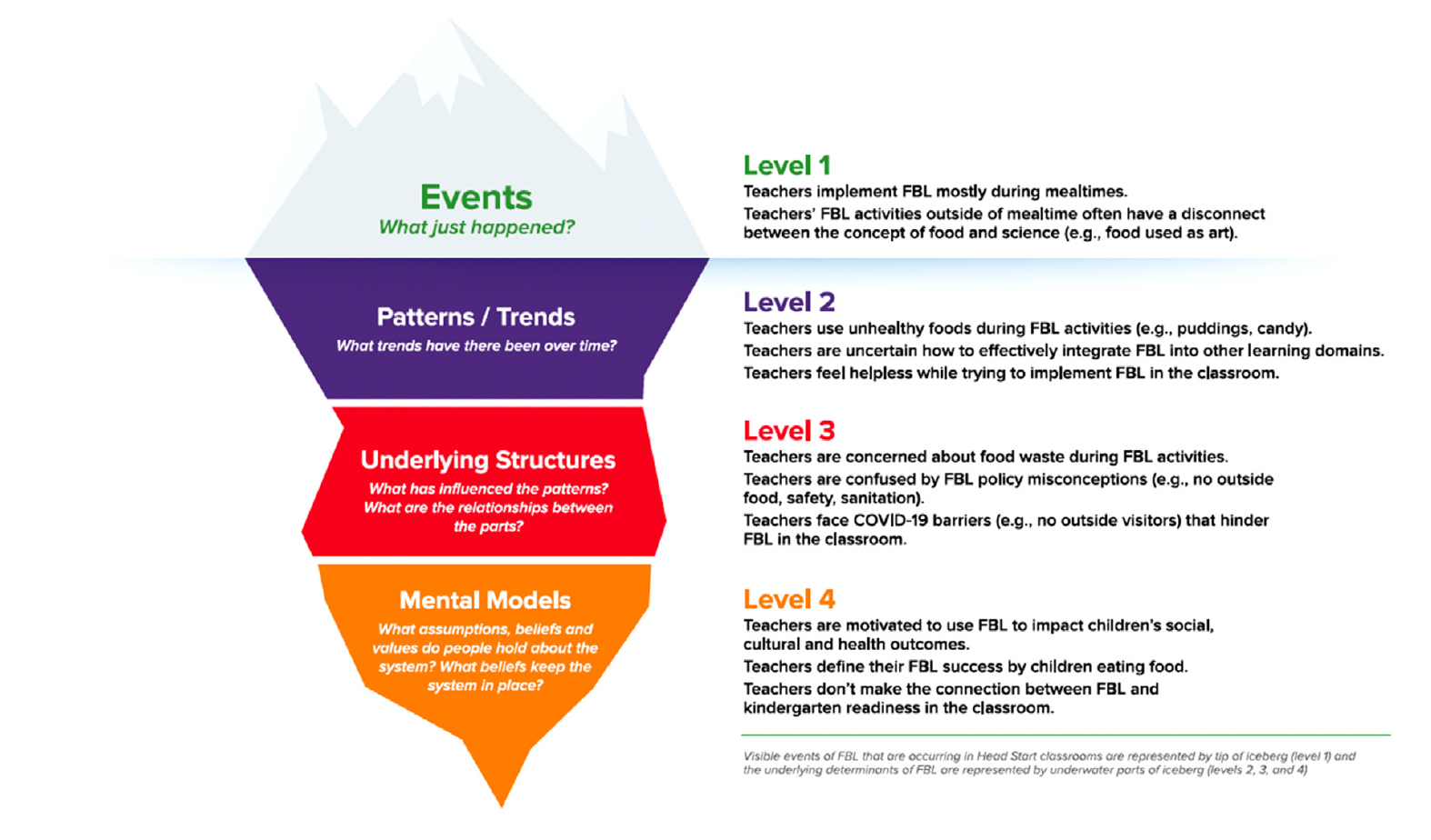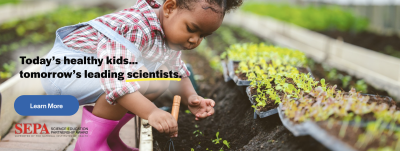Integration of Food-based Learning With Science in the Preschool Classroom: Implementation Gaps and Opportunities

Abstract
Objective: To explore Head Start teachers’ use and integration of food-based learning (FBL) with science
learning in the Head Start classroom.
Design: Phenomenological approach using in-depth semistructured telephone interviews.
Setting: North Carolina Head Start preschools.
Participants: Thirty-five Head Start lead and assistant teachers.
Phenomenon of Interest: All interviews were transcribed verbatim. Authors coded interview data for
emergent themes.
Analysis: Eleven primary themes were identified during analysis and inductively organized using the Systems
Thinking Iceberg Model.
Results: Teachers described most frequently using FBL during mealtimes. Teachers stated they felt successful
when children were engaged and willing to try a new food. However, they struggled to connect food to
science concepts. Teachers reported several motivators (eg, improving health) and barriers (eg, food waste)
to integrating FBL. Teachers prioritized preparing children for kindergarten, but most teachers did not see
how FBL could help them achieve this goal.
Conclusions and Implications: Head Start teacher professional development programs could impact all 4
levels of the Systems Thinking Model to improve teachers’ perceptions, underlying structures, and mental
models regarding integrative FBL. Additional research is warranted to investigate the adoption, implementation,
and potential impact of FBL on academic outcomes.







